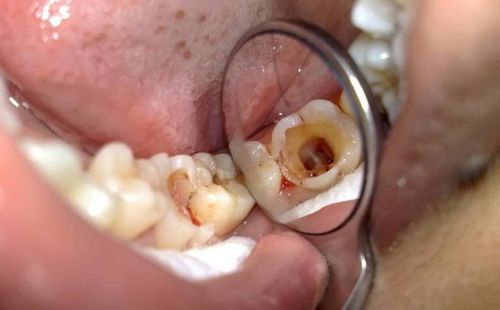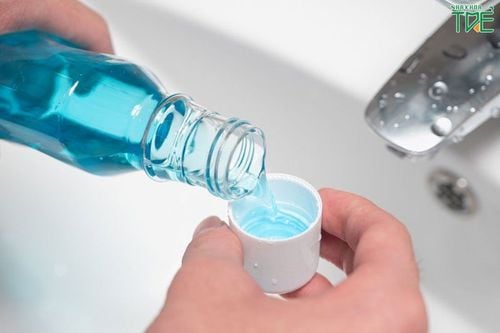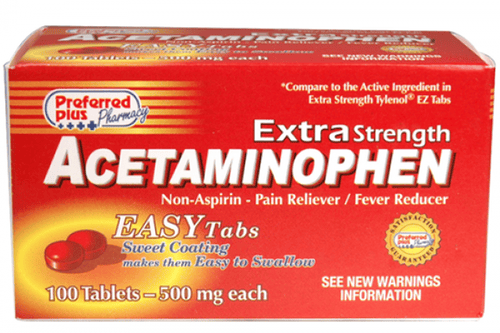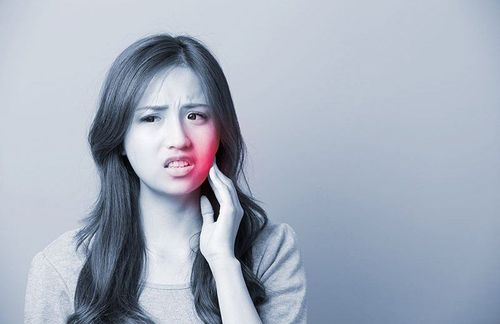This is an automatically translated article.
The article is professionally consulted by Doctor of Dentistry - Jaw - Face - Department of Examination & Internal Medicine - Vinmec Hai Phong International General HospitalWhen you have sensitive teeth, certain activities, such as brushing, eating, and drinking, can cause temporary, sharp pain in your teeth. Sensitive teeth are often the result of worn enamel or exposed roots. Sometimes, however, tooth discomfort is caused by other factors, such as cavities, cracked or chipped teeth, worn fillings, or gum disease.
Tooth sensitivity, also known as dentin hypersensitivity, is a feeling of pain or discomfort in the teeth caused by the teeth's response to certain stimuli, especially temperatures that are too hot or too cold.
Sensitive teeth can be a temporary or chronic problem, which can affect one tooth, certain teeth or the entire tooth. Sensitive teeth can be caused by a number of different reasons, giving the patient a lot of trouble in life but fortunately most cases of sensitive teeth can be easily treated through a change in regimen. Oral personal hygiene.
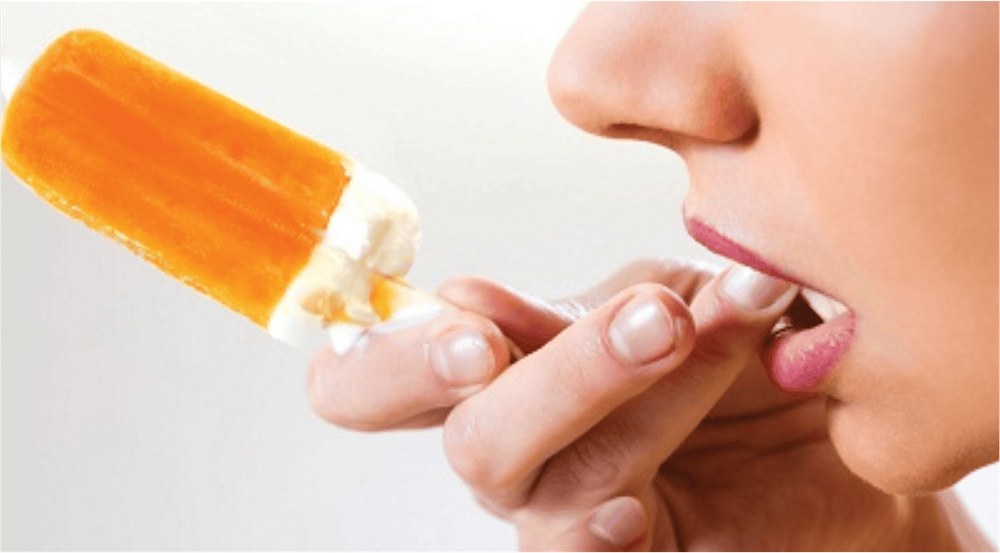
Răng nhạy cảm khiến bạn cảm thấy ê buốt khi tiếp xúc với đồ nóng hoặc lạnh
1. Causes of sensitive teeth
Some people have more sensitive teeth than others simply because their enamel is thinner. Enamel is the outermost layer that protects teeth, in some cases, enamel can be worn away due to the following reasons:Brushing teeth too hard Using a toothbrush too hard Habit of grinding teeth while sleeping at night Regularly eating or drinking highly acidic foods In some cases, other health problems can also be the cause of sensitive teeth. In gastroesophageal reflux disease (GERD), for example, acid from the stomach moves upward and can erode tooth enamel over time. Or in gastritis or bulimia can also cause acid to gradually erode tooth enamel leading to teeth becoming more sensitive.
Gum problems can also leave parts of the tooth exposed, unprotected, and make teeth sensitive.
Cavities, broken teeth or chipped teeth can expose dentin, leading to excessive sensitivity of the teeth. Usually these cases only cause sensitivity in one tooth or a specific area of the tooth affected instead of the entire tooth
Teeth can also experience temporary sensitivity after a number of interventions or dental procedures such as fillings , crowns or teeth whitening . In this case, the sensitivity of the tooth depends on the procedure and the area where the procedure is applied. Teeth will also return to their normal state after a few days or weeks.
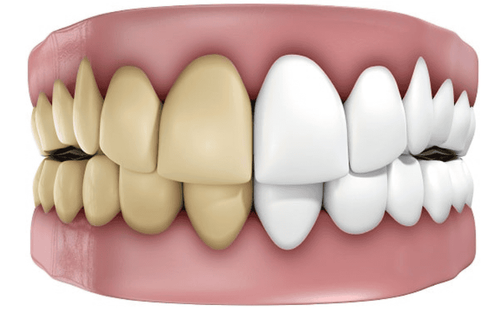
Răng có thể trở nên nhạy cảm hơn sau khi can thiệp tẩy trắng răng
2. Symptoms and diagnosis of sensitive teeth
2.1. Symptoms of sensitive teeth The symptoms of sensitive teeth are quite diverse. People with sensitive teeth may experience pain or discomfort when their teeth are exposed to certain agents, especially temperature. The patient may feel pain or sensitivity at the root of the tooth when it comes in contact with some foods such as:Very hot food or drink such as freshly cooked soup or soup Very cold food or drink Cold air Food and sweet drinks Highly acidic foods or drinks Using cold water when brushing teeth Flossing Using an alcoholic mouthwash Symptoms can appear and disappear over time for no apparent reason. Their severity also varies from person to person.
2.2. Diagnosing sensitive teeth The process of diagnosing sensitive teeth is also relatively easy to do. If the patient is experiencing tooth sensitivity for the first time, the doctors will visually check the teeth through examination or review the health and sensitivity of the teeth as well as check for other problems such as cavities, fillings. Loose or gum problems to determine the cause of sensitive teeth
In addition, dentists may also order an X-ray of the teeth to rule out other causes such as tooth decay.
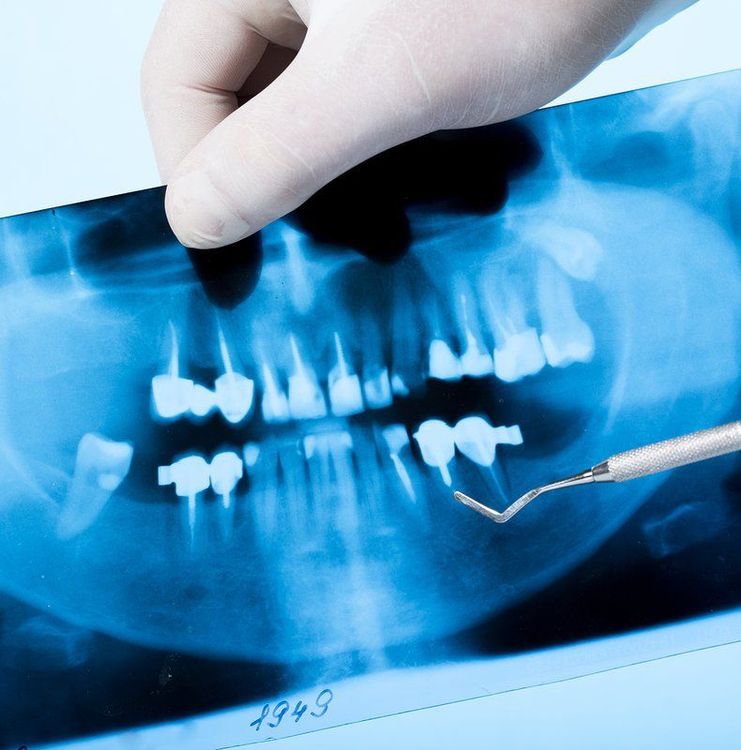
Người bệnh có thể tiến hành chụp X-quang răng để loại trừ các nguyên nhân khác
3. Treatment of sensitive teeth
3.1. Change in daily oral hygiene habits If tooth sensitivity is mild, the patient may be advised to apply the following methods in daily oral hygiene:Choose a toothpaste labeled Specially designed for sensitive teeth. These toothpastes do not contain any ingredients that are irritating to the teeth, and some toothpastes also contain desensitizing ingredients to help prevent discomfort that can affect the nerves. for sensitive teeth Choose and use alcohol-free mouthwashes because they are less irritating for people with sensitive teeth. Using a soft toothbrush and brushing gently is also very beneficial for oral health in general and sensitive teeth in particular. Changing some habits in daily oral hygiene needs patience from the patient. Results will appear after a few weeks if they fully apply the above methods. In cases where home treatments including changing your daily oral hygiene routine don't work, you can talk to your dentist about prescription toothpastes to treat. sensitive teeth.
In addition, dentists may also apply certain fluoride gels or desensitizers. These methods can also help strengthen tooth enamel and protect your oral health.
3.2. Medical treatment for sensitive teeth In the case of sensitive teeth due to other health problems, doctors will prioritize treating these causes before they cause enamel to wear down and become damaged.
Gastroesophageal reflux disease can be treated with medication to reduce acid levels while bulimia should be treated under the supervision of a psychiatrist.
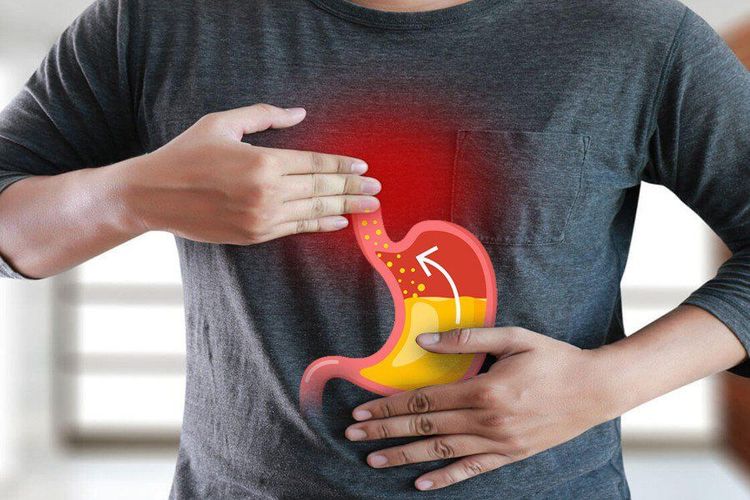
Răng nhạy cảm do bệnh trào ngược dạ dày có thể điều trị bằng thuốc giảm nồng độ acid
Patients can train themselves to stop grinding their teeth at night. Reducing stress and limiting caffeine use before bed is the best way to limit teeth grinding. In case the above methods do not work, a mouth guard may be considered to prevent grinding from damaging your teeth.
The condition of sensitive teeth brings many troubles to patients in life. However, they can be treated with toothpaste or mouthwash specifically for sensitive teeth.
In addition, you should also visit a dentist at a specialized clinic to avoid health risks as well as complications of sensitive teeth if you detect one of the following symptoms:
Unexplained toothache Sensitivity Local sensation in a tooth or a certain area of tooth Increasing pain Sensation of tooth discoloration Severe toothache when biting or chewing Vinmec International General Hospital is one of the hospitals that not only guarantees professional quality with a team of leading medical doctors, a system of modern equipment and technology, but also outstanding with comprehensive and professional medical examination, consultation and treatment services; civilized, polite, safe and sterile medical examination and treatment space.
Please dial HOTLINE for more information or register for an appointment HERE. Download MyVinmec app to make appointments faster and to manage your bookings easily.
Article reference source: webmd.com, healthline.com



